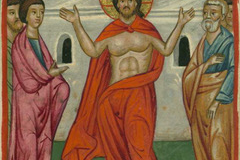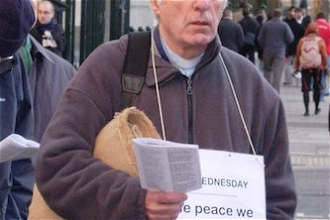Notes on the law and religion in England and Wales
Following the reports on the Archbishop of Canterbury's address on Sharia law, a spokesperson from the Bishops Conference of England and Wales has sent the following notes. 1. The current legal situation in England and Wales is more complex than we might think. As well as the secular law of the land, there is some recognition already given by the civil law to the decisions of religious courts. The most obvious is the Church of England itself where "a series of ecclesiastical courts have jurisdiction over matters dealing with the rights and duties of church members, including doctrine and practice. These courts are part of the English court system. A number of other religions also have their own courts systems or forums for dispute resolution. Some of their decisions, such as arbitration awards, may be enforceable through the English court system. For example the London Beth Din, in its capacity of Court of the Chief Rabbi, where arbitration awards have been enforced by the civil courts. However, as regards other areas of law the English courts are not bound to enforce any order made other than orders made by the courts of the Church of England. In the area of family law, the courts have been prepared in some instances effectively to give recognition to some religious orders or decrees made by religious organizations in the circumstances of the case. To date proposals to have a system of separate religious courts for the Muslim community with jurisdiction to hear a wide range of disputes between members of the community, for example family law issues such as child custody, in England have been rejected." (Freedom of Religion, Minorities and the law, Samantha Knights OUP 2007) 2. The question whether the law should grant such jurisdiction to religious courts is distinct from the wider question of how far the law should accommodate religion. We have in the Human Rights Act article 9 freedom of religion, and in many aspects of UK law there is an explicit accommodation of religious views through the 'rule and exception' model of law. That is what we find, for instance, when exceptions are granted regarding employment law (allowing us to require a Catholic for a head teacher post) or conscientious objection (the doctor refusing to do a termination). 3. It is very important to keep these two categories of accommodation distinct. The Archbishop in fairness did make the distinction, but it has not come through in the reporting of what he said. 4. On the question whether the law here should allow greater recognition to religious courts, there are two principles to bear in mind (a) the duty to uphold the universality of law which binds all of us equally, and (b) the way the state appropriately accommodates the reasonable expectations of religious communities, but without undermining the common good. The Archbishop was pointing to the tension between these two principles and there is an important debate to be had here, but there are also wider implications as the press coverage of his remarks makes clear. 5. So far as the Catholic Church is concerned, we have our own canon law, and the processes which that requires, including a system of marriage tribunals in England and Wales. Their decisions are not enforceable in civil courts, and the Church has not sought to make them so. The way these courts work is through the consent of the parties. Source: Catholic Bishops Conference of England and Wales


















